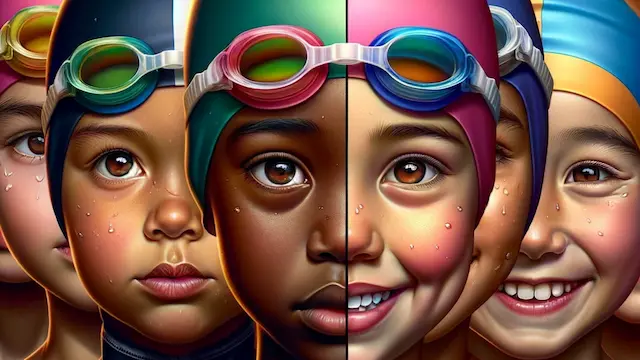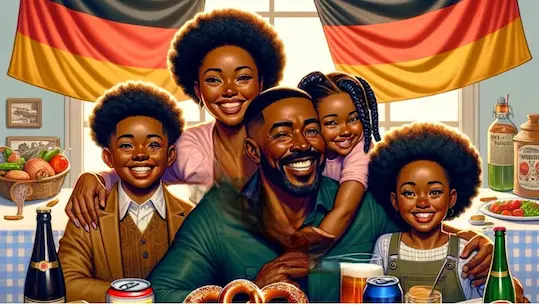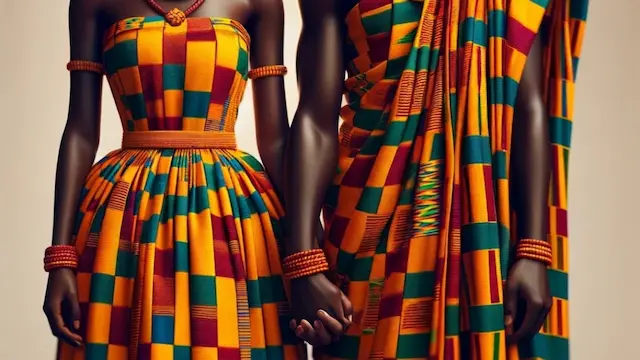Growing Up Multicultural: Embrace Family Culture with Pride
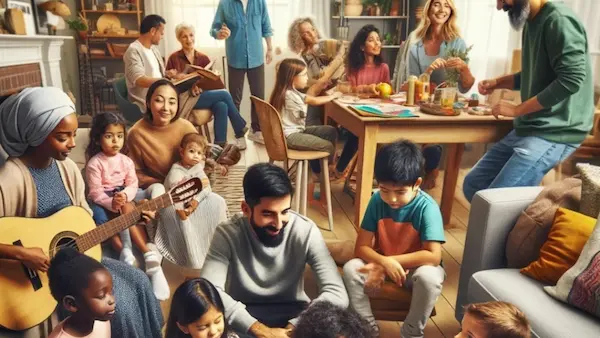
THIS POST MAY CONTAIN AFFILIATE LINKS. THIS MEANS I MAY RECEIVE A COMMISSION FROM QUALIFYING PURCHASES YOU MAKE THROUGH MY LINKS. KINDLY READ MY DISCLOSURE NOTICE FOR MORE INFORMATION.
Growing up in a multicultural family can be both enriching and challenging. You may have grown up with different traditions, languages, and beliefs that set you apart from your peers.
However, embracing your family's cultural diversity and cultural traditions can bring a sense of pride and identity that is unique to you.
Maya Angelou's quote “In diversity, there is beauty and there is strength.” sums it up beautifully.
Diversity adds richness and strength to our lives. Our unique multicultural backgrounds are something to be celebrated and appreciated throughout many ethnic groups.
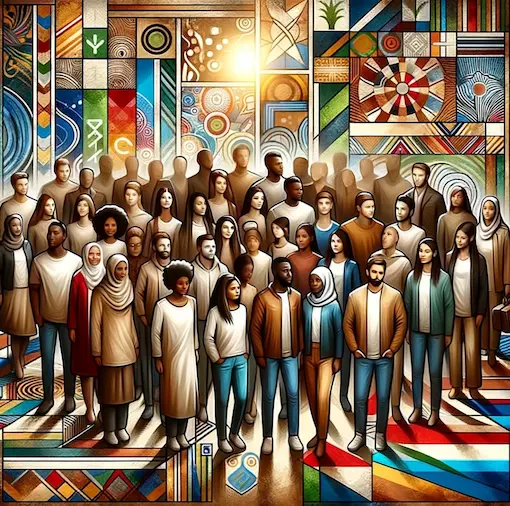
Balancing and blending different cultures can be difficult, especially at a young age, but it is special when you find a way to honor all of your family's traditions.
You may find that certain customs resonate more with you than others, and that's okay.
It's important to find a balance that works for you and your family while being open to embracing different perspectives.
As a multicultural family, blending our inherited Ghanaian culture with our experiences in Germany and the United States has been an interesting challenge.
We have found ourselves trying to navigate a healthy balance between the life we are building in America and the cultural roots we hold so dear.
Like so many other multicultural families, finding that balance becomes an important part of raising our children and ensuring an intentional blend of our diverse backgrounds.
Your multicultural background can profoundly shape your identity. Embracing your cultural heritage can give you a unique perspective on the world and help you relate to people from different backgrounds.
Practical Steps to Embrace Your Multicultural Heritage
To help your family celebrate and connect with your unique cultural background, try these practical steps:
- Celebrate Cultural Holidays: Plan family gatherings around holidays from each culture in your family, learning about their significance together.
- Learn and Use Languages: Incorporate multiple languages in your household, teaching kids simple phrases or songs from your heritage.
- Share Family Stories: Tell stories from both sides of the family, sharing anecdotes, traditions, and experiences that shaped your family’s journey.
- Explore Traditional Foods Together: Bring your heritage to life in the kitchen by cooking traditional dishes as a family, sparking curiosity and connection with cultural roots.
Taking these small, intentional steps can build a sense of pride and identity in your children, helping them feel connected to their heritage.
The Essence of Multicultural Identity
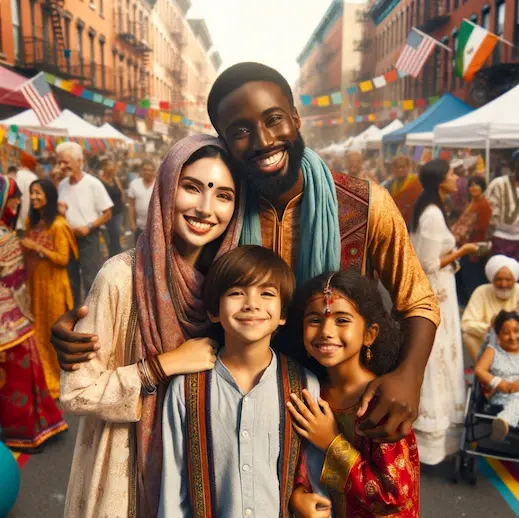
Your cultural identity is an integral part of who you are and shapes your worldview. How can you embrace said identity with pride?
Understanding Cultural Identity
Cultural identity refers to the sense of belonging and connection to a particular culture or group.
It is shaped by a variety of factors such as race, ethnicity, language, religion, and nationality.
Your cultural identity is not fixed and can evolve as you explore different cultures and experiences.
There is no point in my life, where I did not find myself navigating the balance of Ghanaian, German, and American influences in our household.
It was a process of adapting, growing, and most times, feeling like I had to pick and choose which layer of identity I would embrace that day.
Embracing your cultural identity can help you develop a strong sense of self and pride in your heritage.
It can also help you connect with others who share similar backgrounds and experiences. Understanding your cultural identity, walking, and living in that knowledge, can help you navigate different cultural contexts with ease and respect.
Embracing Diverse Roots
Embracing your diverse roots means acknowledging and celebrating the different cultures that make up your identity.
It means learning about your family's traditions, customs, and values and incorporating them into your daily life.
I always say, that embracing my Ghanaian culture, is not only about eating Ghana Jollof Rice and knowing the latest Hiplife or Afrobeat hits.
And same goes for embracing my German culture, it is more than knowing all Modern Talking songs by heart, Lederhosen, Beer, and Schnitzel.
It is about cherishing the gift of multiple cultural identities and sharing them with our children and actively incorporating traditions, customs, and practices into our daily lives, making sure our children grow up appreciating the richness of their multicultural background.
Embracing diverse roots can also mean exploring other cultures and learning from them. It means being open to new experiences and perspectives and recognizing the value of diversity in our world.
By embracing diverse roots, you can create a sense of unity and belonging with people from all walks of life.
Why Embracing Multiculturalism Matters in Today’s World
In today’s diverse world, embracing multiculturalism isn’t just about celebrating heritage – it’s about building resilience, understanding, and empathy in our children. Here’s why this matters:
- Personal Growth: Exposure to different cultures promotes open-mindedness and adaptability, key traits for personal growth in a globalized society.
- Sense of Belonging: Children who are encouraged to connect with their heritage feel a stronger sense of belonging and identity.
- Empathy for Others: Teaching children to respect and value all cultures helps cultivate empathy and a well-rounded worldview.
By embracing multiculturalism, families contribute to building a more inclusive, compassionate society, preparing children to thrive in an interconnected world.
Family Dynamics in a Multicultural Household
Growing up in a multicultural household will have you encounter very enriching experiences.
Still, it can also come with unique challenges, especially when it comes to family dynamics and daily life.
Parenting with Purpose: Nurturing Multicultural Values
Raising multicultural children calls for a mindful approach to parenting that embraces each cultural layer of your family’s identity. Here’s how you can intentionally nurture multicultural values:
- Establish Cultural Routines: Create regular family routines that honor cultural practices, whether through music, dance, or arts and crafts.
- Encourage Curiosity and Respect: Model curiosity and respect for diverse cultures, helping your children see value in learning about other backgrounds and perspectives.
- Talk About Identity Openly: Encourage open conversations around identity and belonging, allowing children to explore and embrace their own unique cultural mix.
Intentional parenting like this celebrates heritage and encourages empathy and cultural understanding.
Language and Communication in a Multicultural Household

Depending on your family's background, there may be one or more native languages spoken, as well as the dominant language of the country you live in.
This can lead to some interesting communication dynamics, as family members may need to switch between languages depending on who they are speaking to.
For me, it was often the case that I would hear the words being spoken and the meaning behind them, but if asked what language that person was speaking, I would not be able to answer that.
Have you ever noticed what language you count in? I have been outside of Germany for over a decade now, however, I still count in German. The German language is so deeply ingrained that it takes no effort for me.
While as children we spoke German in my daily life, at home, we proudly conversed in Twi, our Ashanti dialect, with our Ghanaian parents, and we were fortunate enough to learn and speak English pretty well because we lived close to an American Army base and always had family and friends within the Army close by.
In some cases, parents may choose to prioritize one language over another, either because their pediatrician has cause for concern, because their child might be slightly delayed in speech, or because parents believe one language is more important for their child's future success or because you believe the other language will preserve your cultural heritage.

Struggling to balance modern life with your cultural traditions?
It’s possible to honor your heritage while embracing the flow of modern living, and this guide can help you begin.
This can lead to tensions between family members, especially if one parent speaks a different language than the other.
Find a good balance between incorporating all languages in one way or the other and trusting the process.
I primarily speak German and English with our children, while my husband speaks Twi (Ghanaian dialect) and English.
I often wonder how our parents made it work, but it does work, through consistency – children catch on, catch up, and are resilient.
Celebrating Traditions and Holidays in a Multicultural Household
For children growing up in a multicultural household, religious holidays, cultural festivals, and other special occasions can be a way to connect with their heritage and learn about their family's culture.
However, it can also be a challenge to balance the different traditions and expectations of each family member.
It is important to communicate these challenges in a way that one culture does not feel abandoned by the other.
In our family, every celebration is an opportunity to blend the old with the new. We create traditions that reflect who we are – a beautiful blend of cultures.
Food and Family Culture in a Multicultural Household
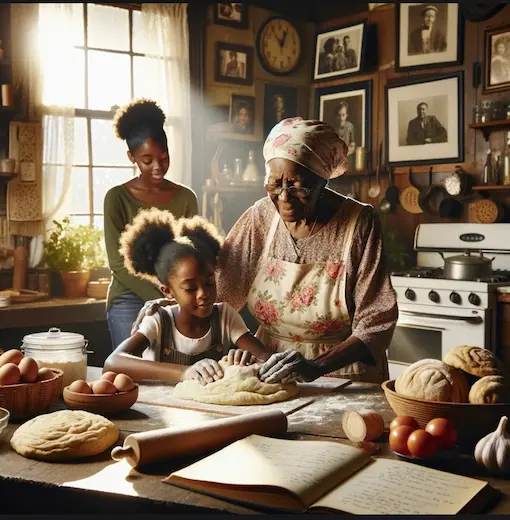
Food is an important part, if not the most important part of family culture in many multicultural households.
Traditional foods can be a way to connect with one's heritage and pass down family recipes from generation to generation.
However, it can also be a challenge to balance steering away from the misconception that our food is “unhealthy”.
We find ourselves following Western ideals of “health and wellness foods” while abandoning our cultural- and local foods, in pursuit of living a healthier lifestyle.
In many parts of the world, there are many food items to find that are plant-based, full of vitamins and minerals, and unprocessed.
Let us encourage ourselves and our children that our foods are healthy and let us change that narrative. Food can be a way to explore different cultures and cuisines.
Challenges and Triumphs of Growing Up Multicultural

You may find yourself navigating conflicts and differences, struggling to find your cultural footing, and seeking a sense of belonging.
However, if we see our journey as a blessing and not a burden, we will approach our unique identity with a sense of pride in our heritage.
Navigating Conflict and Differences in a Multicultural Household
At times we may find that our family members have different beliefs, values, and traditions than us.
However, by practicing empathy and understanding, you can navigate these conflicts and differences by engaging in open communication.
It's important to listen to each other's perspectives and find ways to compromise. By doing so, you can create a healthy family environment that celebrates and respects each other.
Finding Your Cultural Footing as a Multicultural
As a multicultural individual, you may struggle with finding your cultural footing. It can be challenging to balance diverse cultures and multiple identities and feel like you fit in with either culture.
This can be especially difficult if you are a first-generation immigrant or have moved to a new country.
Embrace your family's traditions and be proud of your cultural background.
Whether it's speaking Twi or celebrating German holidays, these practices have helped shape our traditions.

The Power of Belonging when Growing up Multicultural
One of the most rewarding aspects of growing up multicultural is the power of belonging, especially when you find a community that “gets it”.
By embracing your heritage and celebrating your family's traditions, you can feel a sense of pride and connection to your roots.
This can be especially important when you feel like you don't fully fit in with either culture you are a part of.
As a multicultural kid, I often felt like a foreigner everywhere I went. Not Ghanaian enough, not German enough, not American enough.
However, all the cultures have shaped my identity and how I connect with the world around me – I now fully value my multicultural identity because I choose to embrace each one.
I find joy in standing out and embracing my multicultural identity, in hopes of inspiring others to do the same.
Whether you're a multicultural- or a third-culture kid, your unique experiences and perspectives can help create a more inclusive and diverse worldview.
Multicultural Educational and Community Engagement

Multicultural Education and Empowerment
Multicultural education can empower you to feel confident and knowledgeable about your own culture, as well as other cultures.
It can help you develop empathy and understanding for those around you with different backgrounds.
By learning about different cultures, you can also gain a deeper appreciation for the diversity that exists in your community and the world as a whole.
There are many ways to engage in multicultural education, both inside and outside of your home or school.
Some classes or clubs focus on diversity and cultural awareness. You can also seek out books, tutors, movies, and other resources that highlight different cultures.
We have found a great way to spark our kids' curiosity about the world – Little Passports. They send fun boxes that teach and entertain our little explorers, making learning about different cultures fun.
Engaging with and learning from people from different backgrounds can be a valuable learning experience.

Building Community and Finding Support as a Multicultural
Until the later parts of High School, I was the only one in my school who was black and that shaped me for the most part, the support I received, when it came to that aspect of my identity did not come from my peers, but from our home.
Growing up multicultural can sometimes feel isolating, especially if you are the only one in your school or community who shares your cultural background.
Building community and finding support can help you feel more connected and confident in your identity.
You can seek out cultural- or spiritual organizations or clubs in your community or connect with others who share your background online.
It can also be helpful to talk to family members or friends who understand your experiences.
In addition to finding support, it is important to actively engage with your community and share your culture with others.
This can help break down stereotypes and promote understanding. You can participate in cultural events or festivals, or even organize your own.
By sharing your culture with others, you can help create a more inclusive and welcoming community for everyone.
Celebrating Multiculturalism Globally
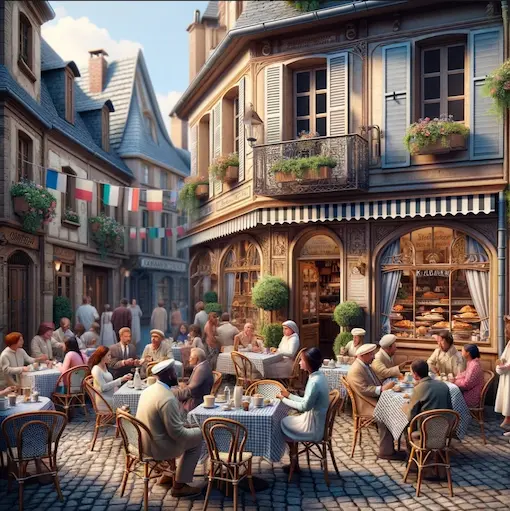
As the world becomes increasingly connected and the rise of multicultural identity and multiracial families, it is important to celebrate multiculturalism globally.
By embracing the diverse cultural backgrounds of our family, we can gain a deeper understanding and appreciation of the world around us.
Below are some ways you can celebrate multiculturalism on a global scale:
Travel and Global Awareness as a Multicultural
Traveling to different parts of the world can be an eye-opening experience that exposes you to new cultures and ways of life.
By immersing yourself in different cultures, you can gain a better understanding of the world and the people in it.
This can help you to become more tolerant and accepting of others, regardless of their cultural background.
I have had the privilege of traveling to many different countries and outside of Ghana, Turkey was and is a country that I gained a better understanding of and love for – there was a narrative I grew up around that was debunked, once I had a chance to visit.
Cultural Exchange and Au-Pair to Celebrate Multiculturalism
Cultural exchange- and au pair programs can be a great way to celebrate multiculturalism. By hosting an exchange student or au pair from a different cultural background, you can expose yourself and your family to new traditions and ways of life that fit your dynamic.
This can help to create a more blended and diverse family culture that everyone can be proud of.
No matter how you choose to celebrate multiculturalism, it is encouraged to do so with pride and respect for all cultures and backgrounds.
By embracing your cultural heritage and learning about others, you can create a more tolerant and accepting world for future generations.
“In the dance of cultures, find your rhythm. Embrace the unique melody that resonates within you, for in the harmony of your own identity, you create a symphony of belonging that transcends borders.”
Embracing multiculturalism as a family is an ongoing journey filled with opportunities to connect, learn, and grow.
By integrating these actionable steps, intentional parenting strategies, and cultural routines, you can help your children feel deeply rooted in their heritage while embracing the beauty of diversity.
Celebrate each part of your cultural identity and empower your family to carry these traditions forward.
Frequently Asked Questions

How can I help my child feel proud of their identity?
Share stories, celebrate traditions, and surround them with people who appreciate their background.
What if my child faces identity challenges?
Encourage them to embrace their uniqueness and reassure them that it’s normal to explore different parts of their identity as they grow.
How do I handle external biases or stereotypes?
Equip your child with tools to respond calmly, encouraging them to ask questions or educate others about their culture.
What are the benefits of being raised in a multicultural household?
It can lead to increased adaptability, open-mindedness, and empathy towards others. Exposure to multiple languages, different nationalities, and traditions can also enhance cognitive development and creativity in children and young adults.
How do you know if you are a third-culture kid?
A third culture kid (TCK) is someone who has spent a significant portion of their developmental years outside of their parents' culture. This can include children of expatriates, military service members, immigrants, or those who have grown up in multicultural households.
What does it mean to identify as a multicultural individual?
Identifying as a multicultural individual means recognizing and embracing the different cultural influences that have shaped your identity. It means acknowledging that your experiences and perspectives may differ from those of others and celebrating the diversity that makes you unique.
How can growing up in a multicultural environment negatively impact personal development?
Growing up in a multicultural environment or multiracial family may lead to a sense of cultural dislocation or identity confusion, which can be challenging to navigate. Find a community that can relate to you and be an active participant.
In what ways does a multicultural upbringing influence family dynamics?
A multicultural upbringing can lead to greater cultural understanding and appreciation, as well as the ability to navigate different cultural norms and traditions. However, they may also lead to conflicts or misunderstandings arising from cultural differences. Families should communicate openly and respectfully, setting aside all tribalism, about their cultural backgrounds to experience a positive and inclusive family dynamic.
IF THIS POST RESONATES WITH YOU, CONSIDER EXPLORING MORE OF OUR WEBSITE AND PINNING ONE OF THE IMAGES BELOW!
Thank you for your support.




